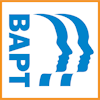BY JERRY GILPIN
 This year we’ve all been forced to take a step or two back from what we used to think of as ‘normal’; lots of my friends and clients have told me that there has been a bit more time to reflect and to read, and that mirrors my own experience. As part of this reflection, it’s been a privilege to be able to spend time with my fellow BAPT Board members taking a step back to look at a strategy for the organisation; both for where we might want to get and to how we want to get there. We’ve had specific strategy-focussed conversations every couple of months since the AGM in April.
This year we’ve all been forced to take a step or two back from what we used to think of as ‘normal’; lots of my friends and clients have told me that there has been a bit more time to reflect and to read, and that mirrors my own experience. As part of this reflection, it’s been a privilege to be able to spend time with my fellow BAPT Board members taking a step back to look at a strategy for the organisation; both for where we might want to get and to how we want to get there. We’ve had specific strategy-focussed conversations every couple of months since the AGM in April.
The first thing we tried to clarify was: what sort of organisation are we, and what do we want to be known for? Quite quickly we came up with four words: we wanted BAPT to be accessible, inclusive, sustainable and ethical. Accessible is all about being the sort of organisation that people can feel comfortable interacting with; making type and the great resources that we have available. It’s closely related to us being inclusive – not only inclusive of the great diversity in our society (race, gender, orientation and so on) but also inclusive of people at different stages on their ‘type journey’. And BAPT needs to be sustainable as well – not only trying to do things in a way that doesn’t harm the planet, but also making sure that BAPT can be around for long enough to take care of the type community into the future; so we need to pay attention to things like income and succession planning.
Most of all, the key thing we felt should mark BAPT out was a commitment to an ethical approach to type; to using type well; to modelling best practice and encouraging us all to use type in this way. After all, we all know the liberating power that the model has; but we have probably all heard stories of it being used poorly to limit and stereotype, and this damages individuals and as a result, it damages the model as well and its credibility.
So a key piece of work for us this year has been to create an ethical statement of best practice, which we offer in outline here in advance of the Conference.
BAPT Ethical Statement
BAPT offers the following principles for professional type practice:
Focus on the Person
- The individual determines their best fit type
- All type preference combinations are equally valuable
- The individual exists in a broad context
Use the Language of Preference
- Preferences and whole type are dynamic, not static and definitional
- Preferences are not skills or competencies
- Preferences are not predictive of behavioural traits
Put Type into Practice
- In your own behaviour, choice of language and use of examples
- In standing for ethical use of type
- In modelling the use of type as a tool in the larger endeavour of human development
The Conference Session
In a shared and collaborative session together at the Conference, we shall offer a bit more detail on the points above and, as a Board, we are sure you will want to share your views on this and to make this statement come alive with examples, applications and implications. After all, all of us, as members of BAPT, can contribute to enabling type to be better used and understood. A hundred years on from Jung’s seminal work, it’s BAPT and our fellow organisations around the globe who can take this precious resource into the future. So join us as a type community in April, and take your part in the conversation.
About the Author
 Jerry Gilpin (INTJ) is a coach, coaching supervisor and facilitator who has been using Type as a core part of his work since he set up his coaching business in 2007. He has a background in education and the Church of England, and works with individuals and groups in education and the Third Sector as well as with a range of small, medium and large businesses. His interests include literature and music, and the work of neuroscientist and philosopher Iain McGilchrist, which he finds grounds and contextualises type as a model. He took on the role of BAPT Board Secretary following the AGM in 2020. Email: sec@bapt.org.uk.
Jerry Gilpin (INTJ) is a coach, coaching supervisor and facilitator who has been using Type as a core part of his work since he set up his coaching business in 2007. He has a background in education and the Church of England, and works with individuals and groups in education and the Third Sector as well as with a range of small, medium and large businesses. His interests include literature and music, and the work of neuroscientist and philosopher Iain McGilchrist, which he finds grounds and contextualises type as a model. He took on the role of BAPT Board Secretary following the AGM in 2020. Email: sec@bapt.org.uk.

